Welcome to our Learning Disability and Autism Page!
People with a learning disability and autistic people often experience poorer physical and mental health than other people. We don’t think that should be the case!
We therefore wanted to provide our community with an information support page to help people with a learning disability and or autistic people to better understand their health conditions, how to remain well and what additional health support is on offer to them.
We have also included some resources for our professional colleagues, to support them in meeting some of your additional needs.
| Testing | Testing | Testing | Testing |
| Testing | Testing | Testing | Testing |
A learning disability affects the way a person understands information and how they communicate.
This means a person with a learning disability may have difficulty with:
• understanding new and complex information
• learning new skills
• coping independently
If you have a learning disability, you may experience difficulties with everyday activities. For example, household tasks, socialising, or managing money. This can affect you for your whole life.
It tends to take longer for a person with a learning disability to learn and you may need support to develop new skills, understand complicated information and interact with other people.
We do not always know why a person has a learning disability.
Sometimes, it can be because a person’s brain development is affected, either before they are born, during their birth, or in early childhood. In other cases it could be a result of other health conditions, such as cerebral palsy, Down’s syndrome or epilepsy. There are also instances where a learning disability has occurred as a result of a significant brain injury, or even a stroke.
There are different types of learning disability, which can be mild, moderate, severe or profound.
A learning disability is different for everyone. Lots of people who have a learning disability can work, have relationships, live alone and get qualifications. Other people might need varying levels of support throughout their life.
Because of these variations, it can be difficult for professionals to diagnose a mild disability. Our learning disability service teams are therefore working hard to improve professional awareness across all healthcare specialties across Hampshire and the Isle of Wight to ensure that more people with learning disability challenges are identifies and provided with the support they need.
It is important to remember that with the right support, most people with a learning disability in the UK can lead independent lives.

Mencap, a learning disability charity has been working with people with a learning disability and their families and carers. They asked people with a learning disability, what ‘learning disability’ means to them:
Some Useful links for more information on learning disabilities:
Further information about learning disabilities can be found using the following links:
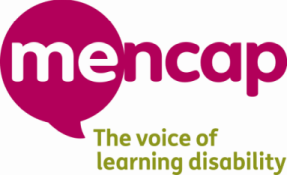 MENCAP's Learning Disability Information Page
MENCAP's Learning Disability Information Page
 Official NHS Learning Disability Information Page
Official NHS Learning Disability Information Page
Are you on the Learning Disability Register?
If you have a learning disability, ask your GP practice to review putting you on their ‘Learning Disability Register’. This will help them to review your support needs. We have included a ‘Learning Disability Register’ section below for more information.
Autism is a lifelong developmental disability, which affects how people communicate and interact with the world.
More than one in 100 people are on the autism spectrum and there are around 700,000 autistic adults and children in the UK.
The medical name for autism is ‘autism spectrum disorder’, also referred to as ‘ASD’.
Autistic people may act in a different way to other people.
Autistic people may:
• find it hard to communicate and interact with other people
• find it hard to understand how other people think or feel
• find things like bright lights or loud noises overwhelming, stressful or uncomfortable
• get anxious or upset about unfamiliar situations and social events
• take longer to understand information
• do or think the same things over and over
Autism is not an illness.
Being autistic does not mean you have an illness or disease. It means your brain works in a different way from other people.
It is something you are born with. Signs of autism might be noticed when you are young, or not until you are older. Nobody knows what causes autism, or if it has a cause.
If you are autistic, you are autistic your whole life.
Although Autism is not a medical condition with treatments or a “cure”, some people may need support to help them with certain things.
Autistic people can live a full life.
Being autistic does not have to stop you having a good life.
Like everyone, autistic people have things they are good at, as well as things they struggle with.
Being autistic does not mean you can never make friends, have relationships, or get a job. But you might need extra help with these things.
Autism is different for everyone.
Autism is a spectrum. This means everybody with autism is different.
Some autistic people need little or no support. Others may need help from a parent or carer every day.
Autistic people can have any level of intelligence.
Some autistic people have average or above average intelligence.
Some autistic people have a learning disability. This means they may find it hard to look after themselves and need help with daily life.
Autistic people may have other conditions.
Autistic people may have other conditions, such as:
• attention deficit hyperactivity disorder (ADHD)
• dyslexia
• anxiety
• depression
• epilepsy

A film about autism, which has been narrated by Alan Gardner, the Autistic Gardener:
Some useful links for more information on autism:
Further information about autism can be found using the following links:
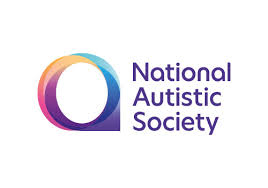 National Autistic Society's Autism Information page
National Autistic Society's Autism Information page
What is the learning disability register?
The learning disability register is a list of people with a learning disability that your doctor’s surgery look after.
Every doctor’s surgery has their own learning disabilities register.
The learning disability register list will help your doctor, nurses and other healthcare staff know what support you need. This can include:
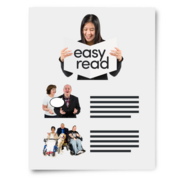 Easy read information
Easy read information
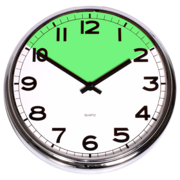 Longer appointments
Longer appointments
 Support with making decisions
Support with making decisions
What is the GP Learning Disability Register (North East & Cumbria Learning Disability Network)
Who can get on the Learning Disability Register?
Anyone of any age and any level of disability can join the learning disability register and get extra support. You can join the register, even if you live on your own, or receive little support in your everyday life.
Why should you join the Learning Disability Register?
It is good to join the learning disability register. By joining you can get:
• extra support when you visit your doctor – including making an appointment
• support to understand your doctor
• more time to talk about how you are feeling
How do I get onto the Learning Disability Register?:
First, contact your doctor’s surgery.
The receptionist might not know about the register and might not be able to check for you. Therefore, you may need to make a doctor’s appointment to talk about the learning disability register and if you can join.
When you first contact the doctor’s surgery, you can ask them to check if you are on the learning disability register already. If you are not in the learning disability register, you can ask to be added.
At your appointment with your doctor, you can tell them about your learning disability and the kind of support you need.
You can ask for Reasonable adjustments and support to make it easier to book an appointment and visit the doctor’s surgery.
The Learning Disability Register – Short film
Some useful information about the Learning Disability Register:
The Learning Disability Register – Useful easy read documents:
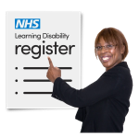 Link to Learning Disability Register Easy Read Resource Page
Link to Learning Disability Register Easy Read Resource Page
For more Information about the Learning Disability Register:
 Link to: MENCAP: Everything you need to know about the learning disability register
Link to: MENCAP: Everything you need to know about the learning disability register
Previous Spiel - For update:
 People with a learning disability often have poorer physical and mental health than other people. As part of our work to reduce health inequalities we are working to make sure everyone with a learning disability who is aged 14 or older has an annual health check with their GP. This will give people time to talk about anything that is worrying them and help to catch any problems early.
People with a learning disability often have poorer physical and mental health than other people. As part of our work to reduce health inequalities we are working to make sure everyone with a learning disability who is aged 14 or older has an annual health check with their GP. This will give people time to talk about anything that is worrying them and help to catch any problems early.
People will be invited to have an annual health check if their name is on the Learning Disability Register at their doctor’s surgery. People aged 14 or over with a learning disability can ask their doctor to add their name to the Learning Disability Register to make sure they get their annual health checks.
You can find out more about how to tell your doctor you have a learning disability in this Easy Read guide.
Following an annual health check, the person and their doctor will write a health action plan together. This will include advice on how to stay healthy, and information about the support a person will receive to help them follow that advice.
You can find out more about annual health checks and watch some videos about people’s experiences here.
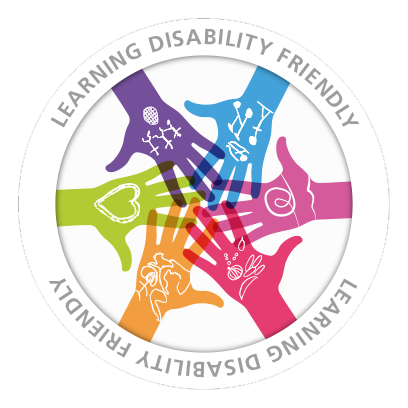
DEVELOPING WITH KARINA REDFERN
The Oliver McGowan mandatory training on learning disability and autism is named after a young man named Oliver McGowan. Oliver’s life was tragically cut short due to a rare reaction to anti-psychotic medication. It was later found that a number of key pieces of information were not adhered to during his care, which could have prevented his untimely death.
Learn about Oliver McGowan’s story here
Oliver’s death shone a light on the need for health and social care staff to have better skills, knowledge and understanding of the needs for autistic people and people with a learning disability.
In response, the government has since introduced a mandatory requirement for all staff to receive adequate training on learning disabilities and autism. The training focuses strongly on an ‘Ask, Listen, do’ approach.
Hampshire and Isle of Wight professionals are committed to preventing the many avoidable deaths like Oliver’s from happening again. We are therefore committed to the rollout of this training to all staff, across all of our healthcare services.

You can find out more about the training here.
Insert Introduction speil (Once know all Toolkits)
Primary Care Professional Toolkit
Acute Professionals
Reasonable Adjustments
Previous spiel - For review and update:
 Too many autistic people and people with a learning disability are dying earlier than they should, many of them from conditions that could have been treated or prevented. The learning from deaths – people with a learning disability and autistic people (LeDeR) programme looks at why people are dying and what we can do to improve people’s health and reduce health inequalities.
Too many autistic people and people with a learning disability are dying earlier than they should, many of them from conditions that could have been treated or prevented. The learning from deaths – people with a learning disability and autistic people (LeDeR) programme looks at why people are dying and what we can do to improve people’s health and reduce health inequalities.
When a person (aged 4 years and over) dies, an initial LeDeR review looks at the health and social care that person received to identify what has worked well, and where improvements could be made. Action is taken locally to address any issues identified, and recurrent themes and significant issues are reported regionally and nationally so action can be taken at a more systemic level.
A further review, called a focused review, will usually be carried out if:
- the reviewer thinks there are things to be learned from the person’s life and death
- the person who died was from a Black, Asian or minority ethnic background
- the person was autistic and did not have a learning disability
- the person had been under mental health or criminal justice restrictions when they died or in the 5 years previously
- family member of the person who died asks us to complete a focused review
Learning from the focused review will be used to decide what actions should be taken to spread good practice and/or address issues of improvement.
Previous spiel - For review and updste:
 The Learning Disability and Autism Keyworker Programme has been developed as a response to the NHS Long Term Plan commitment that by 2023/24, children and young people (CYP) who are autistic and/or have a learning disability, with the most complex needs, will have a designated Keyworker, implementing the recommendations made by Dame Christine Lenehan.
The Learning Disability and Autism Keyworker Programme has been developed as a response to the NHS Long Term Plan commitment that by 2023/24, children and young people (CYP) who are autistic and/or have a learning disability, with the most complex needs, will have a designated Keyworker, implementing the recommendations made by Dame Christine Lenehan.
Our aim is to reduce the number of children and young people who are autistic and/or have a learning disability being admitted to learning disability or mental health hospitals or at risk of being admitted. By supporting local systems to respond to their needs in a coordinated way, we will ensure children, young people and families get the right support, at the right time, in the right place.
Who we work with and what we do
We work with children and young people up to (and including) 25 years of age who are autistic and/or have a learning disability.
We are only able to accept referrals through the Dynamic Support Register (DSR). The DSR teams hold Care (Education) and Treatment Reviews for people of all ages who are admitted to a to a learning disability or mental health hospital, or at high risk of being admitted, because of their mental health and/or complex and challenging behaviours. As part of the C(E)TR, a person-centred plan is created with the child/young person and their family. A referral to the Learning Disability and Autism Keyworker Programme may be a part of that plan.
The Learning Disability and Autism Keyworker Programme offers a short to medium term intervention, working with the family and health, education and care services to co-produce and implement a sustainable person-centred support plan.
Newsletters
We produce a newsletter about the Learning Disability and Autism Keyworker Programme, which we send out by email four times a year (Spring, Summer, Autumn and Winter).
Autumn 2022:
Summer 2022:
If you would like to receive our newsletter by email, please contact us at hiowicb-hsi.ldakeyworkers@nhs.net.
Get involved
The Learning Disability and Autism Keyworker Programme is looking for Experts by Experience to help us develop and improve.
If you are aged 0-25 and on the Dynamic Support Register or are a family member of a child or young person aged 0-25 on the Dynamic Support Register, we would like to work with you.
We will pay you for your time working with us and cover expenses. If you are interested, please email: hiowicb-hsi.ldakeyworkers@nhs.net
Contact Us
Postal address:
Learning Disability and Autism Keyworker Programme Omega House, 112 Southampton Road, Eastleigh, Hampshire, SO50 5PBPhone: 02380 627 444